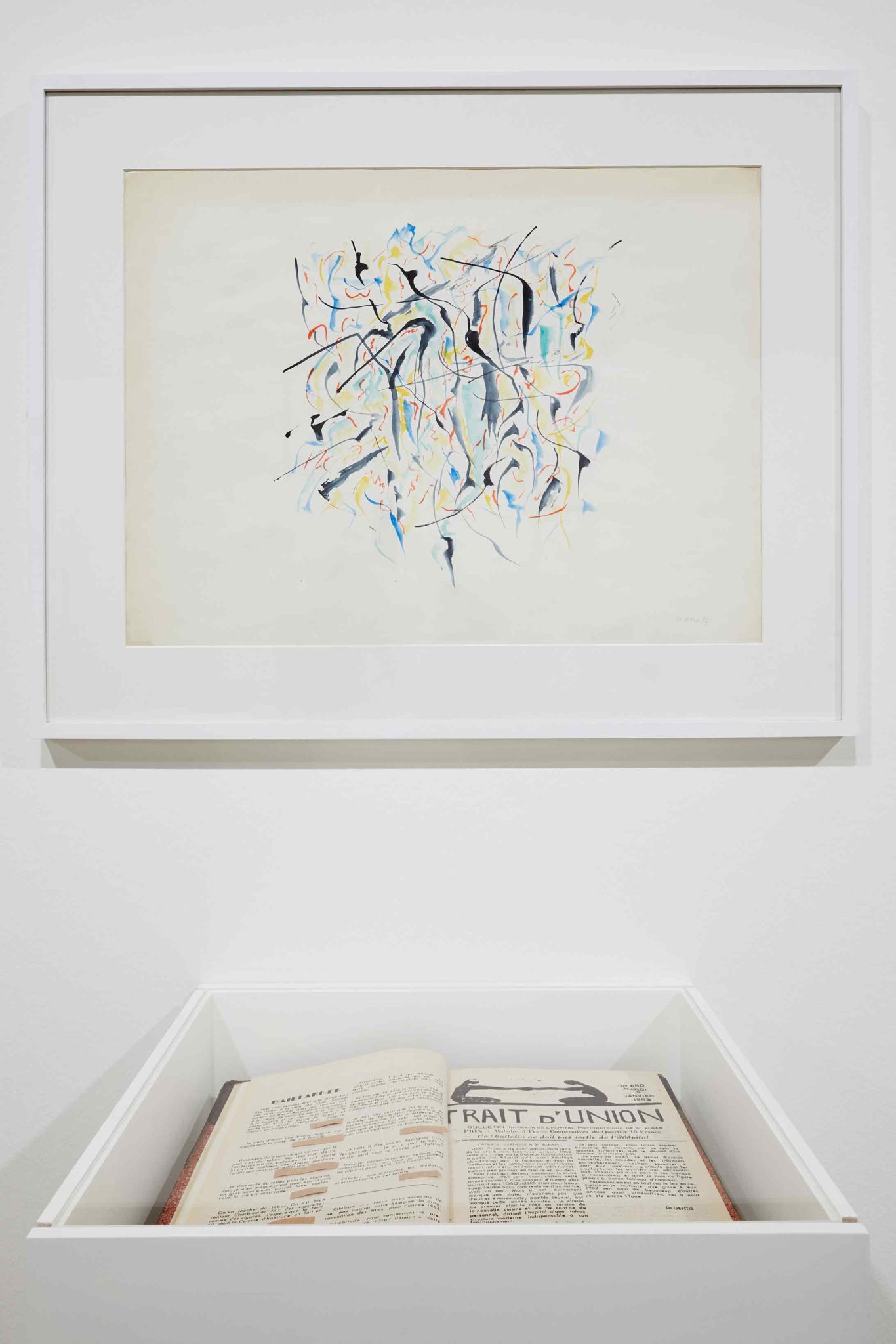Roland Barthes (1915 – 1980, FR), philosopher, critic, semiotician
Roland Barthes’ drawings and paintings from the 1970s were strongly influenced by his visits to Japan in the late 1960s – a country whose writing system still bears traces of ideograms that coupled writing with painting. Barthes was struck by how much Japanese calligraphy was based on bodily processes, an aspect he would later take up in the preface to an encyclopaedia of writing and typography called La Civilisation de l’écriture: ‘I am the artist, not in that l represent an object, but more fundamentally because in writing, my body takes pleasure in tracing, in rhythmically incising a virgin surface’.
He used to draw and paint on weekend mornings, when the mind and body are not fully awake. His works on paper are fragmented, non-representational and devoid of any myths or signifiers. On one hand, they thus illustrated his general approach to écriture. On the other, they also affirmed his synaesthetic approach: ‘I have a disease: I see language,’ he claimed. Though he avoided exclamation marks or ellipses in his writing in an attempt to leave it neutral, Barthes would also draw attention to its visual aspect. The monotony and prolixity of Barthes’ high-strung lines, which recur in hundreds of his artworks, also evoke his interest in ennui: ‘Would ennui thus be my hysteria?’









